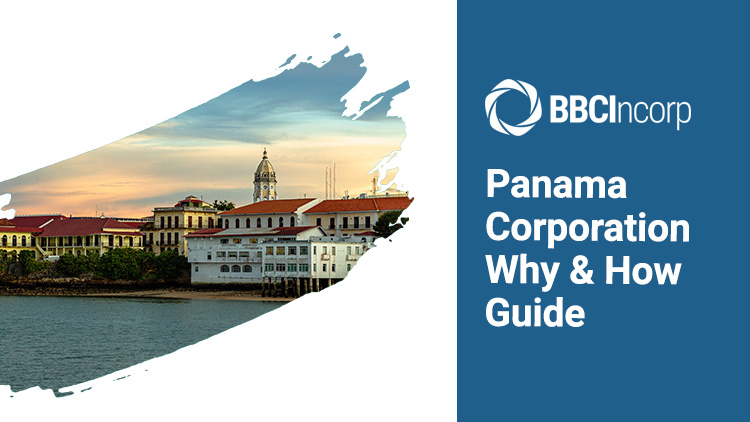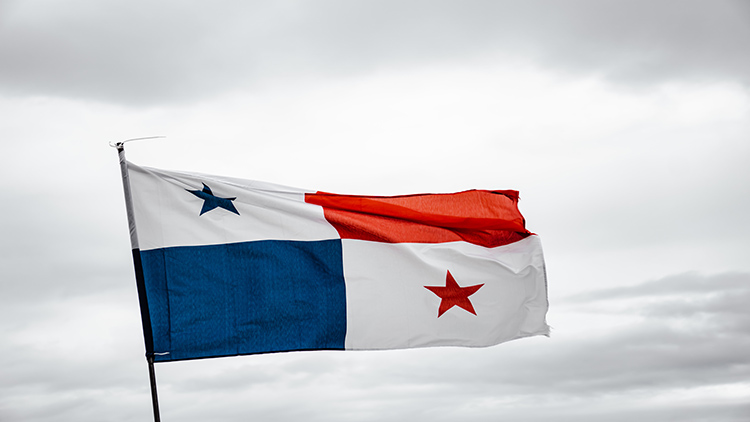
A Panama corporation is an ideal vehicle for those who wish to conduct business in a jurisdiction that has a favorable tax environment and emphasizes corporate privacy in its legislative system.
Setting up one is relatively painless as the country has made sure to make way with excessive formalities in favor of a straightforward registration procedure. It begins its legal existence when two subscribers, regardless of nationality, file and submit an Articles of Association to the Public Registry.
However, further utilization of the entity for commercial and industrial purposes needs to be sanctioned by the corresponding relevant authorities. The following guide seeks to provide you with an all-inclusive perspective on not just the legal aspects leading to incorporation, but also the many ways in which it can be leveraged and considerations post-registration.
1. Panama Corporation and Its Main Uses
A corporation is, among others, a type of business entity that can be registered with the Public Registry in Panama after completion of a series of legal formalities pursuant to Law 32 of 1927. Although the official designation of this entity type is locally called “Sociedad Anonima ” (Anonymous Society), it is sometimes referred to as an International Business Company (IBC).
It is considered as a standard entity type in Panama and eligible for both local and international use, i.e, offshore incorporation doesn’t have a separate entity variant. This is a relatively unique trait that not many other offshore jurisdictions have.
It’s mostly used for business activities such as commercial trading, estate holdings, strategic tax planning on offshore repatriations, and separating shareholders’ personal liability from high-risk business transactions.
The reason for its flexible nature as a corporate vehicle is from the interplay between its extensive corporate privacy legislation and banking secrecy laws. Exemplified by the strict regulations applied to the documentation and disclosure of information relating to corporations, trust and foundations, violation of which will be met with civil and criminal penalties.
On top of this is the network of tax treaties it has with other flourishing economies such as Japan, Belgium, the UK, Canada, etc. Which enables the citizens of those jurisdictions to receive enhanced privacy protection upon forming a corporation in Panama.
2. Why You Should Incorporate in Panama

2.1. Tax Incentives
Tax efficiency is a must-have hallmark in every offshore jurisdiction, and Panama is no exception. The country adopts a territorial approach to taxation, only domestic-sourced income will be taxed (at 25% fixed rate post-tax-deduction) regardless of if the entity has Panama residency or not. Note that a business entity’s domiciliation status is only relevant when evaluating its eligibility for withholding tax (WHT).
Businesses that operate within any free zone like the Panama Pacific(Pacifico) Special Economic Area (PSEA) or the Colon Free Zone (CFZ) can enjoy various forms of tax benefits. Each zone has its own approach to promoting trades which, as a result, employs a different set of tax benefits from each other to achieve it.
2.2. Confidentiality & Asset Protection
There exists a concept called the “corporate veil” which is the protective mechanism that Sociedad can provide for its shareholders. Specifically, the personal assets of shareholders are shielded from any litigation and government seizures since the corporation counts as a separate legal entity with the same capacity to take on duties and rights.
Another non-income generating counterpart to the entity type is a PIF (Private Interest Foundation), an equally popular choice for those looking for enhanced asset protection and estate planning with the added benefit of legal circumvention of their home country’s CFC (Controlled Foreign Corporations) law.
Although it doesn’t directly conduct any business activities, it holds the shares of another currently operating business. It also can partake in any financial activities that would serve to bolster the value of its assets, meaning that it can own bank accounts, securities brokerage accounts, and more.
2.3. High Fiscal Strength
Since Panama has a decentralized banking system, i.e, there’s no central bank, no exchange controls are present which means there’s no cap on monetary remittances abroad, including dividends, interests, branch profits and royalties.
The balboa is the state’s official currency used for transactions, pegged at 1:1 to the U.S dollar, further solidifying its fiscal stability from any global financial crises and keeping inflation as low as possible.
3. How a Corporation is Registered in Panama

3.1. Corporate Details
Subscribers. As mentioned before, at least two individuals of this denomination must be present to initiate the registration process. Additionally, there’s no requirement that states they have to be Panama citizens/residents. Note that subscribers are lawfully entitled to owning one share of the corporation which will be resigned after registration has been completed via signing a document.
Directors. A minimum of three directors (Treasurer, Secretary, and President), can be natural or corporate, are expected to be in place after the corporation has been formed. Their names and addresses are also required to be filed with the Public Registry. A Nominee Directors Service is also a good option to have if anonymity needs to be maintained. Meetings can be organized to take place anywhere in the world as stated in the Articles of Incorporation.
Shareholder(s). At least one shareholder, either an actual person or business entity, must be present post-incorporation in order to receive the issuance of one share (US$100).
Share capital. By standard, the usual authorized share capital is US$10,000 divided into 100 common voting shares, i.e, US$100 per voting share. No par value and bearer shares are also allowed with the latter allowed under the condition that it is held in custody by a resident agent or qualifying entities such as a bank, fiduciary, or a trust company.
Resident agent/registered agent. All registered Panama corporations have to enlist resident agents in forms of either a lawyer or law firm domiciled in the country to partake in legal proceedings.
Purpose of Incorporation. Most would list out the general objectives as to why their corporation is incorporated but further specifications can be made within the corporate bylaws.
3.2. Registration Procedure
Step 1: Choose a Name
You are given the option of submitting up to 3 name choices for your corporation, they all can be in any language as long as they have any of the following required corporate suffixes:
- Incorporation (Inc)
- Corporation (Corp)
- Sociedad Anónima (S.A.)
Prior checking with the Public Registry is advised on the availability of the name before the final decision is made. Reservation of such a name is available for up to 30 calendar days.
Step 2: Produce Signed Company Bylaws
Law 32 of 1927 does not contain any legislative article that stipulates the inclusion of a corporate by-laws (estatutos) in the incorporation procedure. By this, it can be inferred that a business entity can exist without the presence of one.
However, it’s still good practice by shareholders to draft one in addition to the Article of Incorporation as to chart out deeper structural and operational details for later reference.
The typical information often stated in a corporate bylaw includes, among other things, the following:
- Frequency and nature of shareholder/board meetings;
- Details of the company (name, address, location, company type);
- Procedure for record-keeping, issuing shares, ways of conducting business, etc;
- Prerequisites and procedures for future amendments to the Articles of Incorporation.
Note
– Avoid repeating the same provisions already made within the Articles of Incorporation. Negligence of this can result in you having to also make amendments to the articles whenever the provisions are changed.
– A corporate bylaw is considered as a legal admission in courts of laws to substantiate that the governance of an organization was carried out on a fully compliant basis with pre-chartered internal rules and regulations.
– Unless otherwise requested for the purpose of legal assistance by competent authorities, the bylaws will remain exclusively within the company records.
Step 3: Prepare the Information Requirements
Here is a quick recap of all the prerequisites you need to have before proceeding on with the registration process:
- Three options to your company name;
- Name and information of shareholders.
- Purpose of incorporation / planned activity.
- Operational period (set deadline or indefinite).
- Share capital.
- A specified number of nominal shares owned by each shareholder.
- Name and address of at least 3 dignitary-nominated directors.
- Name and address of the resident agent.
Step 4: Register with Relevant Authorities
Once you’ve gathered all the information required to file the articles of incorporation, it’s time to register your corporation with corresponding public authorities.
Firstly, you must notarize your Articles of Incorporation with a Notary Public for the issuance of a public deed which you can then register with the Public Registry. This will set forth the existence of your corporation as a legal entity with a legal capacity equivalent to a natural person.
In this regard, it can enter legal relations, incur responsibilities, and have rights. If your corporation intends to conduct commercial or trading activities upon incorporation, additional fulfilling of formalities to relevant government entities is mandatory.
All corporations incorporated under Panama constitutions have to register before The Directorate General of Revenues (DGI) to obtain a Tax Identification Number, better known as an “RUC”.
Next, you need to register and obtain an Operation Notice from the Panama Emprende System (MICI) as pursuant to Law 5 of January 11,2007. Upon receiving the Operation Notice, a unique number separated from your RUC which will serve to identify in detail each taxpayer that carries out operations within the Republic of Panama.
You will also need to register your corporation on a municipal level. For this you can register with the Treasury of the corresponding municipality in which your corporation has headquarter(s) (Article 84 of Law 106 of 1973).
Finally, file the RUC form on DGI’s official online portal and submit it along with the Notice of Operation, followed by a registration with the Social Security Fund (CSS) (Article 87 of Law 51 of 2005)
Step 5: Open a Corporate Bank Account
As controversial as Panama banking legislation may seem, it’s also one of its strongest assets to attract foreign businesses as there are almost no reporting requirements (aside from the signed Tax Information Exchange Agreement with the US) or income taxation for offshore Panama corporations.
Furthermore, it’s one of the capital countries for corporate banking, housing 41 top-ranking Central American banks. It’s not a dead-set requirement to open a corporate bank account in Panama to conduct business on its soil as it’s still possible to open an offshore bank account in another jurisdiction that aligns better with your business.
To better know which offshore bank is the most suitable for your business, try our banking tool for a linear walkthrough of the selection process.
4. Other Considerations to Have During & After Registration

4.1. High Eligibility for Friendly Nation Visa
For ex-pats looking to make a long-term stay in Panama, the nation offers the option of establishing residency through ownership of a lawfully incorporated corporate vehicle under the Friendly Nations program. It also includes providing residency to optional dependents, e.g, spouse, children up to 25 years old, and parents of the applicant.
Applicants will also have to go through a two-year provisional period to prove that they have been fully compliant with statutory requirements to request permanent residency status. Note that the discontinuation/dissolution of the corporate vehicle used for registration does not affect the applicant’s residency status.
4.2. FATCA Compliance for U.S Citizens
The IRS is the most resilient and vigorous tax enforcement agency whose notoriety even permeates to some Hollywood flicks like Wolf of Wall Streets. They have a reputation for having a non-compromising approach to maintaining tax nexuses with all professionals and corporate entities in the U.S.
All Americans (citizens or legal residents) who participate in any income or non-income generating business activities are required to file a 5471 form. This means that a rental property registered under a corporation that passively generates revenue can still be subject to tax filing with the IRS, a less than pleasant endeavor to say the least. For this reason, estate holding is severely restricted for U.S business owners.
At the other end of compliance are banks whose duties include reporting to the IRS on an annual basis on the opened account information. Another global authority you will have to report to is the Financial Crime Enforcement Network (FinCEN) by filing an FBAR to clarify the amount of money and assets in your foreign accounts.
As you can already deduct, this thick layer of anti-money laundering deterrents makes it impossible to use nominative dignitaries for Americans when incorporating a business in any offshore jurisdiction including Panama.
4.3. Economic Substance Requirements
The start of 2019 saw a mass adoption of new economic substance (ES) provisions by key offshore jurisdictions as a response to global legislative encroachment on financial transparency. It has two prongs of compliance, the business entities incorporated within any ES-enacted jurisdictions and the jurisdictions themselves as governing figures.
Panama is among the latest members in the list of offshore jurisdictions that have adhered to ES requirements, effectively elevating the transparency of its corporate landscape.
Scope of compliance varies across jurisdictions but generally centers around substantiating the core income-generating activities (CIGA) along with an aptitude for business activities such as management, control, operation, etc.
Note
Visit here for a more detailed guide to Economic Substance requirements and regulations.
5. Conclusion
Even with the explanation, registering a Panama corporation can still be confusing for those unfamiliar with the jurisdiction and its legal infrastructure. For this reason, we offer our clients professional help in forms of free consultation services and specialized Panama incorporation service packages to further streamline the registration procedure.
Disclaimer
While BBCIncorp strives to make the information on this website as timely and accurate as possible, the information itself is for reference purposes only. BBCIncorp would like to inform readers that we make no representation or warranty, express or implied. Feel free to contact BCCIncorp’s customer services for advice on specific cases.
Get helpful tips and info from our newsletter!
Stay in the know and be empowered with our strategic how-tos, resources, and guidelines.

